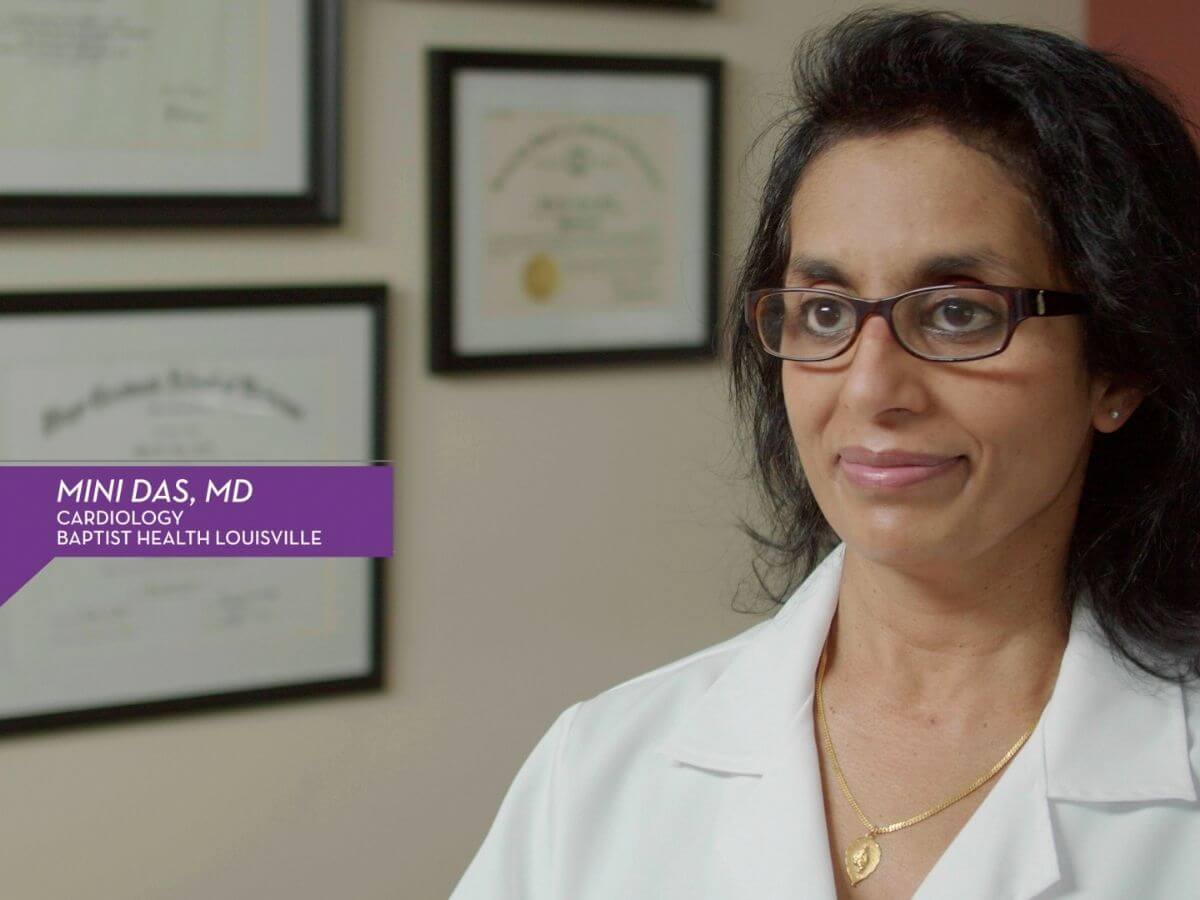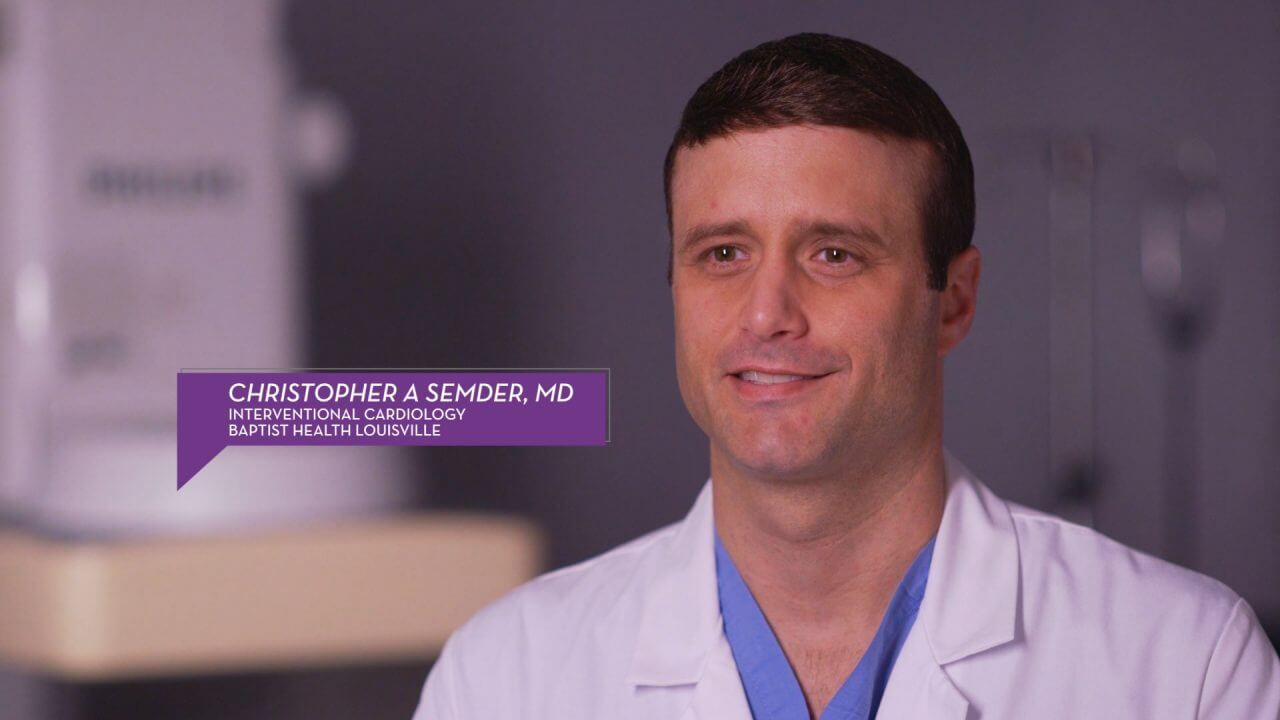Valvular Heart Disease
Baptist Health Louisville: Treating Valvular Heart Disease
Cardiologist MINI DAS explains heart valve abnormalities, describing the causes, symptoms and diagnosis of the conditions and outlining the types of surgical and non-surgical treatments.
Treating Valvular Heart Disease Health Talks Transcript
Mini Das, MD, Cardiologist
There are four valves in the heart, and valvular heart disease has to do with abnormalities of those valves and has to do with blood flow within the heart chambers themselves and abnormalities that lead to either, typically, leakage or what we call regurgitation or stenosis, where the blood has trouble moving forward past that valve. Common symptoms are shortness of breath, palpitations, decrease in exercise tolerance and sometimes chest pains. Echocardiogram is basically a picture or window into the heart. It will tell us about the size of the heart, the chamber sizes. It tells us about the function of those chambers. It will tell us about how the valves themselves work and the impact of those abnormalities to the heart chambers. It will tell us a little bit about the blood flow to the heart but mostly it has to do with the structure of the heart. With the information that we obtain from these studies we can treat a lot of things with medications. But beyond a certain point, it usually takes more aggressive interventions. We’re talking about surgery, cardiac surgery, valve replacement, valve repair. More recently, there are more non-surgical interventions more through catheters, what we call percutaneous valve interventions. Most people are very happy with what they’ve achieved. When you see that person back, it’s just great.



